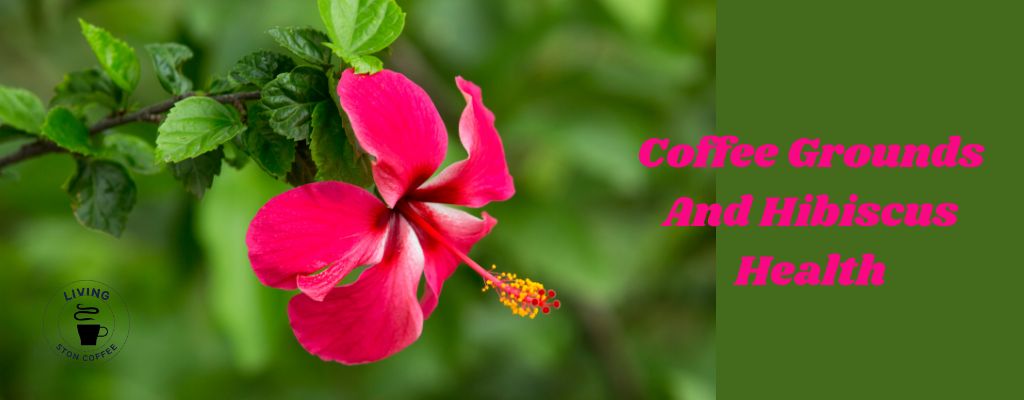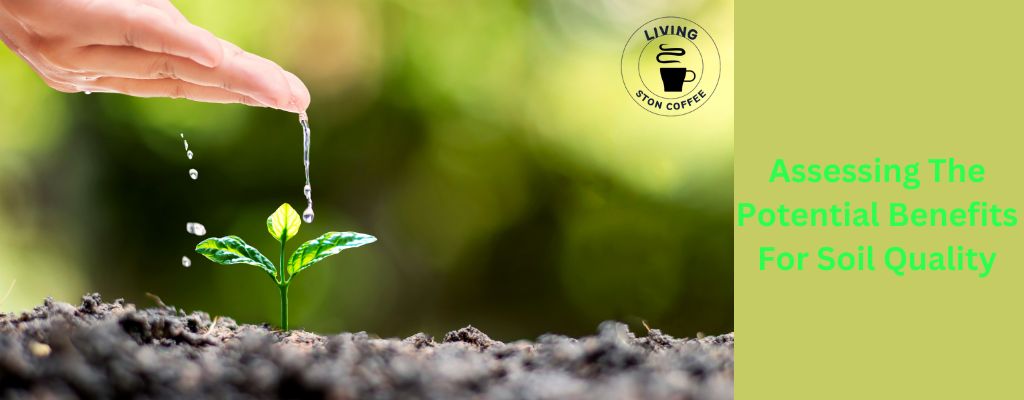Yes, coffee grounds are good for hibiscus plants as they provide essential nutrients such as nitrogen. The organic matter in coffee grounds also improves soil structure and helps retain moisture, benefitting hibiscus growth.
Hibiscus plants can greatly benefit from the use of coffee grounds as a natural fertilizer. Coffee grounds are an excellent source of nitrogen, which promotes healthy foliage and overall plant growth. Furthermore, the organic matter in coffee grounds enhances the soil, fostering a favorable environment for hibiscus roots to thrive.
By incorporating coffee grounds into the soil, hibiscus plants can experience improved nutrient uptake and better resistance to diseases and pests. Overall, using coffee grounds for hibiscus is an effective and sustainable way to support their health and vibrant blooming.
Coffee Grounds And Hibiscus Health

When it comes to maintaining the health and vitality of hibiscus plants, utilizing natural and beneficial resources can have a significant impact. One such resource that has gained attention among gardeners is coffee grounds. Understanding how coffee grounds can contribute to the well-being of hibiscus plants is essential for optimizing their growth and blooming potential.
Understanding The Nutritional Needs Of Hibiscus Plants
Hibiscus plants thrive when provided with the right balance of essential nutrients. These include nitrogen, phosphorus, potassium, and trace elements such as calcium, magnesium, and iron. The soil pH level also plays a crucial role in supporting hibiscus health, as they prefer slightly acidic conditions with a pH range of 6.0 to 6.5.
Analyzing The Composition Of Coffee Grounds
Coffee grounds are rich in organic matter and contain valuable nutrients that can benefit hibiscus plants. The composition of coffee grounds includes a significant amount of nitrogen, a moderate level of potassium, and traces of other minerals like calcium and magnesium. Additionally, coffee grounds can help in acidifying the soil, which is beneficial for hibiscus plants that prefer slightly acidic conditions.
Coffee Grounds Good For Hibiscus?
Many gardeners wonder if coffee grounds are beneficial for hibiscus plants. Let’s delve into the potential benefits of using coffee grounds as a natural fertilizer for hibiscus plants and the impact they can have on the soil quality and acidity levels.
Assessing The Potential Benefits For Soil Quality

Using coffee grounds as a soil amendment for hibiscus can offer several advantages, including:
- Organic Matter Enrichment: Coffee grounds are rich in organic materials, which can help improve soil structure and promote microbial activity in the soil, enhancing overall soil health.
- Nutrient Content: Coffee grounds contain essential nutrients such as nitrogen, potassium, and phosphorus. When added to the soil, they can gradually release these nutrients, providing a natural and slow-release fertilizer for hibiscus plants.
Impact On Acidity Levels In The Soil Suited For Hibiscus
When it comes to acidity levels in the soil for hibiscus cultivation, the use of coffee grounds can have the following implications:
- Acidifying Effect: Coffee grounds have an acidic pH, and when incorporated into the soil, they can help lower the pH levels, which is beneficial for acid-loving plants like hibiscus.
- Aluminum Availability: The acidity from coffee grounds can facilitate the release of aluminum, which can be beneficial for hibiscus, as they thrive in a soil environment with available aluminum.
Overall, utilizing coffee grounds can be a sustainable and cost-effective way to improve soil quality and provide essential nutrients for hibiscus plants. However, it’s important to use coffee grounds in moderation to prevent over-acidification of the soil and constantly monitor the pH levels to ensure they remain within the optimal range for hibiscus cultivation.
Boosting Hibiscus Growth Naturally
Hibiscus plants are renowned for their vibrant, large blooms and lush foliage. To nurture these stunning plants, it’s crucial to foster robust growth in a natural, eco-friendly manner. Among various environmentally friendly gardening practices, integrating coffee grounds into the hibiscus care routine can significantly enhance their development. Let’s delve into the benefits of using coffee grounds to boost hibiscus growth naturally.
Environmentally Friendly Gardening Practices
Embracing environmentally friendly gardening practices not only fosters the well-being of hibiscus plants but also promotes sustainability. By minimizing the use of synthetic fertilizers and chemicals, gardeners can create a harmonious ecosystem that supports the growth of hibiscus and ensures a healthier environment. Prioritizing natural solutions, such as composting and organic amendments, can contribute to the overall vitality of hibiscus plants while preserving the ecosystem.
Integration Of Coffee Grounds Into The Hibiscus Care Routine
When used judiciously, coffee grounds can serve as an excellent natural fertilizer for hibiscus plants. The organic matter present in coffee grounds enhances soil structure, increases nutrient availability, and facilitates moisture retention, all of which are vital for the optimal growth of hibiscus. Moreover, coffee grounds contain essential minerals like nitrogen, potassium, and phosphorus, which are beneficial for hibiscus growth. However, it’s crucial to ensure that coffee grounds are applied in moderation to prevent any negative impact on the soil pH or plant health. When integrated into the hibiscus care routine, coffee grounds can be a valuable resource for nurturing healthy and robust plants.
- Enhances soil structure
- Increases nutrient availability
- Facilitates moisture retention
- Provides essential minerals
- Positive impact on hibiscus growth
Risks Of Overusing Coffee Grounds
When it comes to using coffee grounds for hibiscus plants, it’s important to be mindful of the potential risks of overuse. While coffee grounds can provide some benefits to hibiscus, excessive application can lead to certain issues that may negatively impact the plant’s health.
Potential Issues With Excessive Use
Overusing coffee grounds in hibiscus plants can lead to an imbalance in pH levels, resulting in soil becoming too acidic. This can inhibit the plant’s ability to absorb essential nutrients, leading to stunted growth and poor flowering.
Additionally, excessive coffee grounds can contribute to an excessive buildup of certain nutrients such as potassium, which can further disrupt the soil’s nutrient balance. This imbalance may lead to deficiencies in other essential nutrients, impacting the overall health of the hibiscus.
Furthermore, over-reliance on coffee grounds as a fertilizer can result in the accumulation of caffeine and other chemicals, which may have harmful effects on the hibiscus plant over time.
Balancing Soil Nutrients For Optimal Hibiscus Health
When incorporating coffee grounds into the soil for hibiscus plants, it’s crucial to balance the nutrient composition to ensure optimal health and growth. This can be achieved by combining coffee grounds with other organic materials such as compost, leaf mold, or well-rotted manure to create a more balanced and nutrient-rich growing medium.
Additionally, regular soil testing can help monitor the pH levels and nutrient content, allowing for adjustments to be made as needed to maintain the ideal growing conditions for hibiscus plants.
Streamlining Your Hibiscus Care
Simplifying The Fertilization Process With Organic Waste
When it comes to maintaining healthy hibiscus plants, simplifying the fertilization process with organic waste can have numerous benefits. It not only minimizes the use of synthetic fertilizers but also promotes a sustainable and eco-friendly approach to plant care.
Best Practices For Applying Coffee Grounds To Hibiscus Plants
Applying coffee grounds to hibiscus plants is an effective way to enhance their growth and overall health. However, it’s essential to follow the best practices to maximize the benefits of this organic waste.
- Use as a soil amendment: Incorporate coffee grounds into the soil around your hibiscus plants to improve drainage and enhance nutrient uptake.
- Avoid overuse: While coffee grounds can be beneficial, excessive application can lead to nitrogen imbalance, affecting the plant’s health.
- Mix with compost: Combine coffee grounds with compost to create a nutrient-rich soil amendment for your hibiscus plants.
- Monitor moisture levels: Ensure that the addition of coffee grounds does not impact the moisture retention of the soil, as hibiscus plants require a well-draining environment.
- Apply in moderation: Remember that moderation is key when using coffee grounds, so apply them sparingly to avoid any negative effects on your hibiscus plants.
By adhering to these best practices, you can harness the benefits of coffee grounds while ensuring the optimal health and growth of your hibiscus plants.

Credit: www.shutterstock.com
Frequently Asked Questions For Are Coffee Grounds Good For Hibiscus?
Is It Beneficial To Use Coffee Grounds For Hibiscus Plants?
Yes, coffee grounds can provide essential nutrients like nitrogen, potassium, and phosphorus to hibiscus plants. They also improve soil structure and promote beneficial microbial activity, ultimately enhancing the overall health and growth of the hibiscus plants.
How Should Coffee Grounds Be Applied To Hibiscus Plants?
To utilize coffee grounds for hibiscus, simply sprinkle a thin layer around the base of the plants, avoiding direct contact with stems or roots. This will gradually release nutrients into the soil as they decompose, providing a sustainable and natural fertilizer for the plants.
Are There Any Potential Risks Of Using Coffee Grounds For Hibiscus?
While coffee grounds can be beneficial, excessive use may lead to an overly acidic soil pH, which can adversely affect these. Additionally, using coffee grounds that contain mold or rancid odors should be avoided to prevent any negative impact on plant health.
Can Coffee Grounds Attract Pests To Hibiscus Plants?
It’s important to monitor for any signs of increased pest activity after applying coffee grounds. While some pests may be attracted to the odor of fresh coffee grounds, proper application and moderation can help minimize any potential pest-related issues for hibiscus plants.
Conclusion
Incorporating coffee grounds in hibiscus care can have numerous benefits, including improved soil nutrition and pest control. The natural acidity and rich nutrient content of coffee grounds help hibiscus plants thrive and produce vibrant blooms. By following simple guidelines for application, you can harness the power of coffee grounds for your hibiscus plants.

